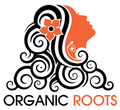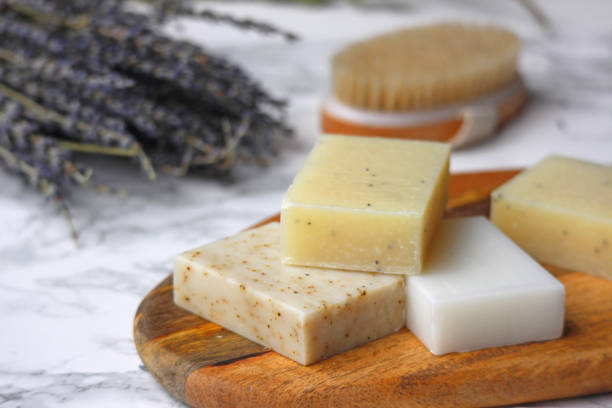- Real Soap is Handmade Natural Soap
There are many different body cleansers to pick from that are marketed as body bars, body washes, cleansing bars, skincare bars, deodorant bars, and even beauty bars as you walk down the aisles of the grocery store or drug store.
Because they are not soap, you'll notice that "soap" does not appear on the label.
They are only detergents that have a different name.
Most of the soap you buy today is made of a combination of chemicals that are produced commercially. It is artificial and hardly barely qualifies as "soap."
- Natural Ingredients Are Used to Make Natural Soap
The ingredients are the best justification for using natural soap. An item is only as good as the components that went into making it.
While the majority of commercial "soaps" are essentially synthetic detergents that have no natural benefits for the skin, OUR skin-nourishing ingredients are USDA Certified Organic, sustainably produced, cruelty-free, and ethically traded.
Each of our soap bar formulas starts with a unique combination of skin-nourishing, nutrient-rich certified organic oils.
When feasible, we utilize more expensive organic virgin, unrefined oils and butters because they are less refined and retain more of their natural benefits.
We then add various organic butters, astringent natural clays, organic herbs, seeds, grains, spices, flowers, vegetables, fruits, chocolate, and pure botanical essential oils to each soap bar to create a unique product that offers natural color, aromatherapy, texture, and gentle exfoliation. This process is inspired by our love of gardening.
Our labor-intensive, thorough procedure for creating soap yields a mild, moisturizing soap that feels creamy in your hands, produces a fantastic lather that lasts for a very long time, and leaves your skin clean, soft, silky, and radiantly healthy.
Small batches of pure plant-based oils, oats, honey, and goat milk are used to create our handmade natural soaps.
The ultimate result is a product that is soft and safe, ideal for your skin.
- Natural soap isn't made with anything.
Our soap bars just have the components they require; they don't contain any additional preservatives or foam boosters that conventional bar "soaps" or liquid body washes do to extend their shelf life to years.
Natural soap includes:
- no artificial ingredients
- no synthetic scents or fragrances
- no synthetic preservatives, detergents, or artificial colors
Commercial bar soaps and even some products marketed as "natural" are made of synthetic materials. Syndet is a term that was created by fusing the words "synthetic" and "detergent." Be aware that many of the most recent shampoo bars on the market are actually syndets rather than shampoo made from natural soap.
Natural soap won't dry your skin or cause skin irritation, which are problems associated with synthetic components. Instead, it uses gentle, skin-safe compounds.
I frequently tell folks that even while our natural soaps have fantastic ingredients, I think what's not in them is just as significant.
Why would you want to take a bath with chemically treated plant oils or agricultural ingredients?
Commercial "soaps" that include oils and butters in their bars are frequently extremely refined.
Virgin, unrefined oils and butters are far more expensive and more difficult to deal with for making soap and other skincare products because of their deep, natural fragrances.
Shea butter, olive oil, and other natural plant oils may be listed as ingredients in products, but due to their refinement, they no longer offer the "advertised" skincare advantages.
-
Organic Soaps Provide Moisture
Unfortunately, a lot of people believe falsely that all bar soaps will dry up your skin. Unfortunately, most commercial bar "soaps" are actually detergents rather than actual soap.
4.Natural soaps are moisturizing for three key reasons.
Plant Butters and Oils are used to make natural soaps.
It must be the ingredients, of course!
These days, natural soap manufactured from pure, unadulterated components obtained directly from nature is hard to come by.
Commercial soaps' potent detergents may be fantastic for cleaning dishes and doing laundry, but they strip away natural skin oils, which dries the skin and may aggravate skin diseases like eczema.
Natural soaps include excessive fat.
Our soap bars go through a process known as "superfatting" in which numerous additional plant oils and butters are added.
Superfatting is the practice of incorporating more fats (oils or butters) into a soap recipe so that there is a greater amount of fat present than the amount of lye that can be reacted with during the chemical reaction.
Our natural soap bars have exceptional moisturizing and emollient characteristics since this procedure retains some unincorporated oils in the final product.
We superfat our bars more frequently than the majority of soap producers.
Commercial soaps forgo their moisturizing qualities in favor of their "forever" shelf-life since adding more oils and butters might shorten a soap bar's shelf-life.
Glycerin from natural soaps remains natural.
Glycerin is produced throughout the natural soap-making process, not added to a formula for natural handcrafted soap! The process of creating soap is known as saponification. The materials unite and undergo a chemical transformation producing soap, glycerin, and a small amount of water once saponification is complete.
A humectant that draws moisture from the air to the skin to create a moisturizing protective layer, glycerin is a priceless and kind emollient.
For a number of reasons, commercial soap producers eliminate glycerin from their soaps.
Glycerin in excess shortens the shelf life of soap.
They can either sell the glycerin or use it in more expensive items like the lotion you require after using their "soap" detergent that doesn't contain glycerin.
Glycerin is taken out of "milled" soap (triple milled or French milled) to prevent equipment clogging.
Consider this! Commercial soap producers take out the moisturizing component (the glycerin), which results in a soap that dries up your skin. They then use the glycerin that was taken out to make a lotion that they can sell you. An extremely clever business plan!
Glycerin-free soaps can be drying and frequently cause itching skin. Handmade soap keeps all of the hydrating glycerin from the skin, which also contributes to the creation of a rich, opulent lather.
Real Aromatherapy Is Offered by Scented Natural Soap
Pure essential oils, not fragrance oils, are used in the production of scented natural soaps, which have aromatherapeutic effects.
Beyond their aroma, essential oils offer other advantages. Breathe deeply as you enter the shower or bathtub. The advantages of aromatherapy range from reducing stress to energizing your spirit.
Essential oils cannot be chemically reproduced in a laboratory.
Even fragrance oils made from natural ingredients are manufactured artificially and lack the therapeutic benefits of essential oils.
The only neurochemicals that can affect the body, mind, and spirit are those that are released in the brain by natural botanical essential oils.
Although synthetic fragrance oils can mimic the aroma of a flower or herb, they do not have any medicinal benefits. Furthermore, because it is regarded as a "trade secret," the FDA does not require businesses to divulge the contents in a "fragrance," even if the general terms "fragrance" or "parfum" on a label can suggest the presence of up to 3,000 different substances.



